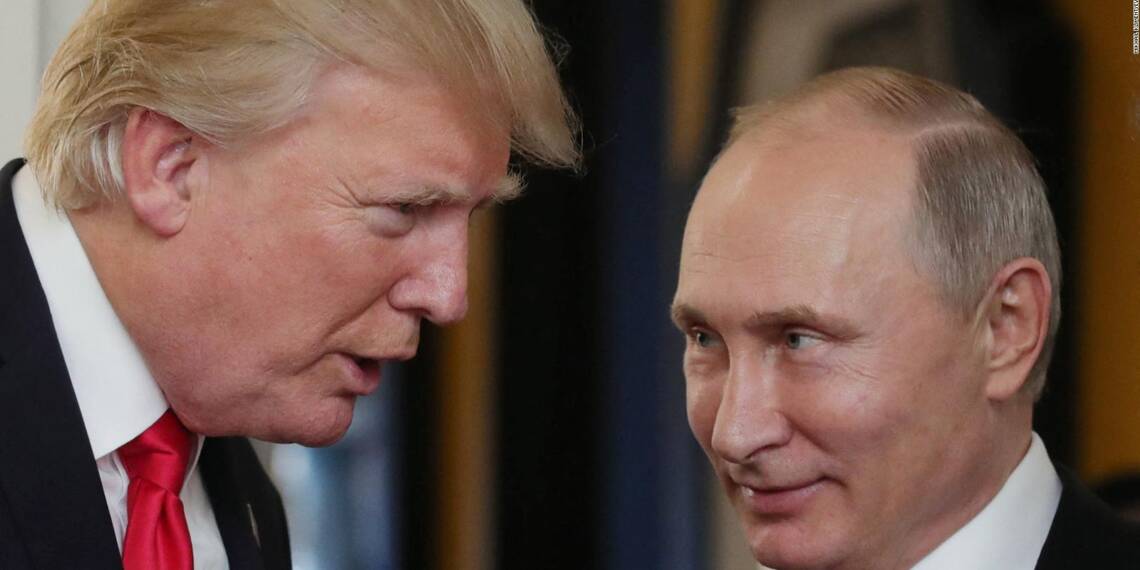Arctic is hot! Trump wants a piece of it. He has already made public his wish to take Greenland, the world’s biggest Arctic island.
But this article is not about Greenland, it’s about Russia-Ukraine war and how the Arctic factor can play a major role in persuading Russia and Putin to come to the peace table.
You see, Since Trump was reelected, his promise to quickly end the Russia-Ukraine war seems harder to achieve. The crisis in Ukraine keeps getting worse, and peace looks distant.
Sending more weapons to Ukraine or putting more sanctions on Russia doesn’t seem likely to bring peace. Russia’s military continues to make slow but steady progress. On the other hand, Kyiv’s security apparatus is falling apart! The EU too seems to be dragging its feet on backing Ukraine in coming months.
This might make Russia’s Putin believe that pushing for a full military victory is a better option than considering peace talks with the West anytime soon.
However, Trump’s new administration could change the approach and offer a fresh strategy to end the war. One way to grab Russia’s attention could be to discuss incentives regarding the Arctic. The Arctic is an area Putin cares deeply about, and such a plan might appeal to Trump too, given his focus on making big deals.
Recently, Putin attended a ceremony to launch the new nuclear icebreaker, Chukotka. While it wasn’t widely noticed in the West, it showed Putin’s strong interest in Arctic development. The Chukotka is an impressive ship: it’s 567 feet long, powered by two nuclear reactors, and can break through ice nearly 10 feet thick. Building such a ship is expensive, costing around half a billion dollars.
This ship is part of a larger plan. It’s the fourth nuclear icebreaker of its kind, with another, the Yakutia, almost ready. By the next year, Russia plans to start building even more advanced icebreakers, each costing a billion dollars—an enormous sum for Russia’s economy today.
These icebreakers are crucial for the Northern Sea Route (NSR), a shipping route north of Russia that connects Europe to Asia. This year, the NSR saw record achievements, like the largest container ship passing through and the most oil transported. For Russia, the NSR is a major economic lifeline. The Arctic region contributes about 10% of Russia’s GDP and 20% of its exports. Russian analysts aim to increase exports through the NSR to 200 million tons within five years.
Beyond oil and gas, the Arctic holds more importance for Russia’s economy. Many of Russia’s rivers, like the Ob and Lena, flow north into the Arctic. A fully functioning NSR could unlock economic growth in Russia’s vast interior, especially in Siberia. This has been a long-standing goal for Russian leaders, making Arctic development a key part of the country’s future.
If Trump and Putin manage to find a way to co-operate on Arctic, Moscow will look to revive its Arctic LNG 2 project. This massive natural gas project is part of Russia’s broader goal to become a leading global supplier of liquefied natural gas (LNG). The Arctic LNG 2 plant is located along the Northern Sea Route (NSR).
If Trump’s administration were to loosen sanctions, Russia’s Arctic LNG 2 project would have more room to grow. Without U.S. restrictions, the project could receive more funding, work with more international partners, and export LNG more freely. This would mean more jobs, more exports, and more revenue for Russia. This would be a big win for Russia, as it could increase the country’s economic power and influence in the energy market.
This is how Trump and the US can win Russia’s trust back. And the US can benefit a lot from amicable ties with Russia. It would help policy makers in Washington DC to focus better on the biggest threat- that is China. Also, US can itself use the NSR to boost its economy for trade with East Asia as well as to develop the Alaska region. A Trump-Putin partnership for the Arctic region would really change the world forever.







